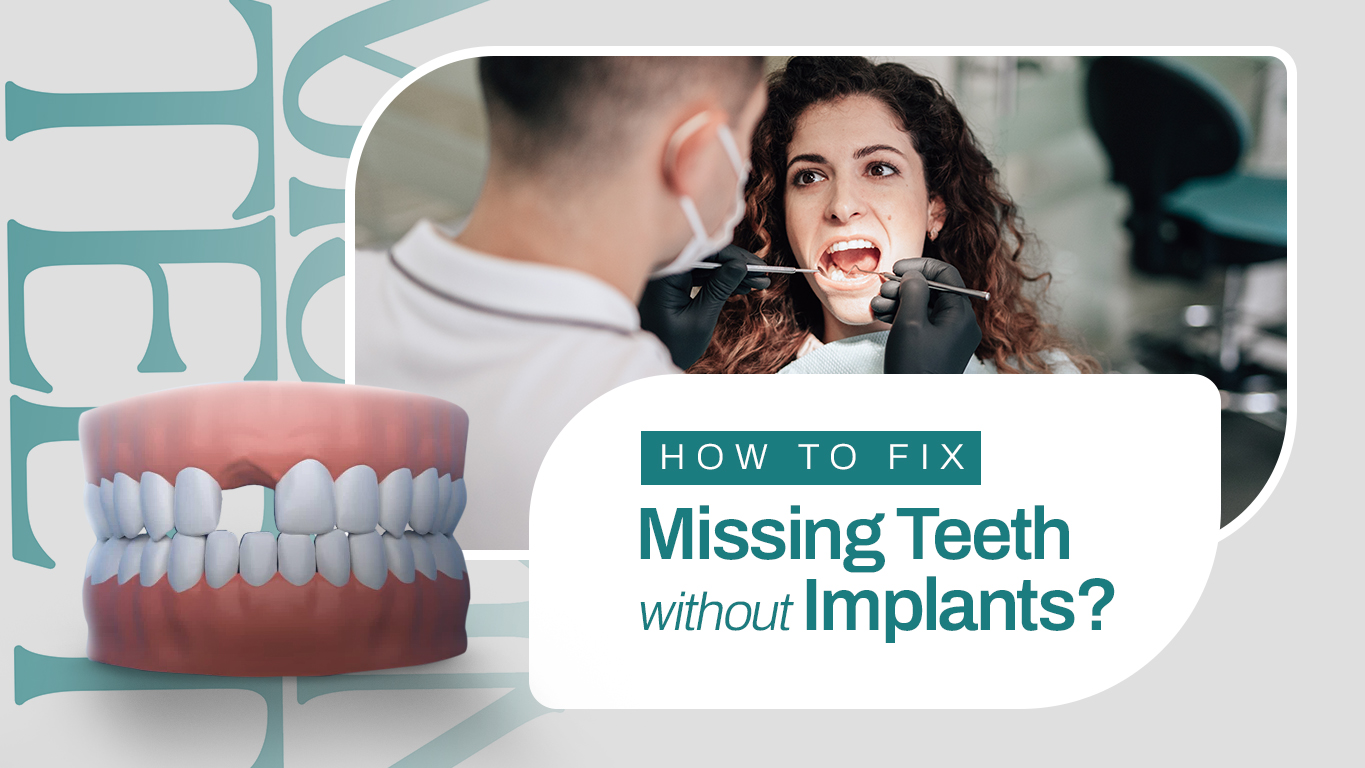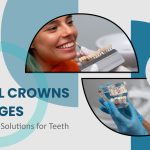Missing teeth can significantly impact your quality of life, affecting everything from your ability to chew properly to your self-confidence when smiling. While dental implants are often considered the gold standard for tooth replacement, they aren’t the only solution available. Many patients seek alternatives due to health considerations, financial constraints, or personal preferences. Fortunately, modern dentistry offers several effective options to fix missing teeth without implants.
Why Consider Alternatives to Dental Implants?
Not everyone is a suitable candidate for dental implants. Common reasons to explore alternatives include insufficient bone density, certain medical conditions, budget considerations, desire to avoid surgery, or time constraints.
Effective Options to Replace Missing Teeth Without Implants
-
Traditional Dental Bridges
Dental bridges have been a trusted solution for replacing missing teeth for generations. These prosthetics literally “bridge” the gap created by one or more missing teeth.
A traditional bridge consists of replacement teeth (pontics) held in place by dental crowns that are cemented onto the natural teeth adjacent to the gap. These anchor teeth, called abutments, provide stability for the entire structure.
Advantages:
- Completed in just 2-3 dental appointments
- Fixed in place (not removable by the patient)
- Natural appearance
- Restores ability to chew and speak properly
- Prevents remaining teeth from shifting
- Usually more affordable than implants
Considerations:
- Requires healthy adjacent teeth
- May require reduction of healthy tooth structure
- Typically needs replacement after 7-10 years
- Doesn’t prevent bone loss in the jaw
-
Maryland Bridges
For patients concerned about altering adjacent healthy teeth, Maryland bridges offer a more conservative approach. These bridges attach to the backs of adjacent teeth using metal or porcelain wings, rather than requiring full crowns.
Advantages:
- Preserves more natural tooth structure
- Less invasive procedure
- More affordable than traditional bridges
- Good for front teeth replacement
Considerations:
- Not suitable for high-pressure areas like molars
- Less stable than traditional bridges
- May become dislodged with certain foods
-
Removable Partial Dentures
Partial dentures represent a versatile solution for replacing multiple missing teeth, even when they’re not adjacent to each other.
Advantages:
- Can replace multiple teeth with one appliance
- More affordable than fixed options
- Easy to clean
- Can be modified if additional teeth are lost
- No alteration of remaining teeth required
Considerations:
- Less stable than fixed options
- Requires removal for cleaning
- May feel bulkier than other options
- Metal clasps may be visible when smiling
- Needs periodic adjustment or replacement
-
Flexible Partial Dentures
Made from nylon or other flexible materials, these modern alternatives to traditional partial dentures offer enhanced comfort and aesthetics.
Advantages:
- No metal clasps (more aesthetic)
- Flexible material adapts to movement in the mouth
- More comfortable than traditional partials
- Virtually unbreakable
- Ideal for patients with metal allergies
Considerations:
- May cost more than traditional partials
- Can be harder to adjust or repair
- May need replacement sooner than traditional options
-
Snap-in Dentures (Overdentures)
While these do utilize mini-implants for support, they require far fewer implants than traditional solutions, making them a middle-ground option.
Advantages:
- More stable than conventional dentures
- Preserves jawbone better than non-implant options
- Allows normal chewing function
- Removable for cleaning
Considerations:
- Still requires some surgical intervention
- Higher cost than other non-implant options
- Requires adequate bone for mini-implants
-
Resin-Bonded Bridges
Similar to Maryland bridges but with different attachment methods, these bridges adhere to adjacent teeth with specialized dental cement.
Advantages:
- Preserves natural teeth
- Completed in a single appointment
- More affordable than most options
Considerations:
- Less durable than other fixed options
- Limited to front teeth replacement
Choosing the Right Option for You
When considering how to replace missing teeth without dental implants, several key factors should guide your decision:
- Location of missing teeth: Front teeth may benefit from more aesthetic options like Maryland bridges, while back teeth require stronger solutions.
- Number of missing teeth: Multiple missing teeth may be better addressed with partial dentures.
- Condition of adjacent teeth: Bridges require healthy neighboring teeth for support.
- Maintenance preferences: Some solutions require more daily care than others.
The Importance of Professional Guidance
Consultation with a dental professional is essential for finding the solution that best fits your specific circumstances. Your dentist will evaluate your oral health, bone structure, bite mechanics, and lifestyle considerations before recommending the most appropriate treatment.
Conclusion
At Carrum Downs Dental Group, our experienced dental team specializes in providing comprehensive solutions for missing teeth. We understand that each patient’s situation is unique, which is why we take the time to thoroughly evaluate your specific needs and discuss all available options.
Our dental professionals are skilled in creating custom-fitted bridges, partial dentures, and other non-implant tooth replacement options that look natural and function effectively. We use only the highest quality materials and latest techniques to ensure optimal results.
Whether you’re missing a single tooth or multiple teeth, we’re committed to helping you find a solution that restores your smile and confidence. Contact Carrum Downs Dental Group today to schedule a consultation and discover the tooth replacement option that’s perfect for your needs.


